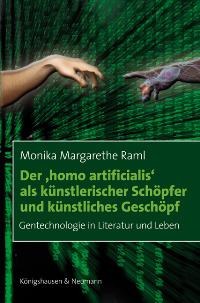Utopia and Dystopia: ›Homo artificialis‹, Contemporary Literature, and Genetic Engineering
DOI:
https://doi.org/10.22029/ko.2010.556Abstract
Monika Margarethe Raml's dissertation deals with artificially created human beings as they are designed by genetic engineering and narrated in contemporary literature. Prose fiction and essayistic texts are the focus of interest here. Raml’s central term, 'homo artificialis', has a double meaning. As Raml understands it, it denominates both the person who creates artificial people – the scientist and the author of prose fiction – as well as the person created. In the first part of her dissertation, Raml presents the subject from the perspective of German philology and natural science. Then she deals with aspects of the 'homo artificialis' in the texts chosen. Finally, the author summarises essential features of the 'homo artificialis' and reflections on his position in society. Explanations of genre and the function of the novels in discourse on gene technology complete the book.

Downloads
Published
Issue
Section
License
All articles (not book covers) in KULT_online from issue 50 on are published under the license Creative Commons Attribution 4.0. All published articles may be reused under the conditions of the license, particularly for commercial purposes and through editing the article (Human-Readable Summary). All authors (have) permitted the publication under the above mentioned license. There is no copyright transfer towards KULT_online. For all book covers specific rights might be reserved, please contact the respective publisher for any lawful reuse. All contributions published in issue 1-49 of KULT_online are free available online and protected by the German Copyright Law.



